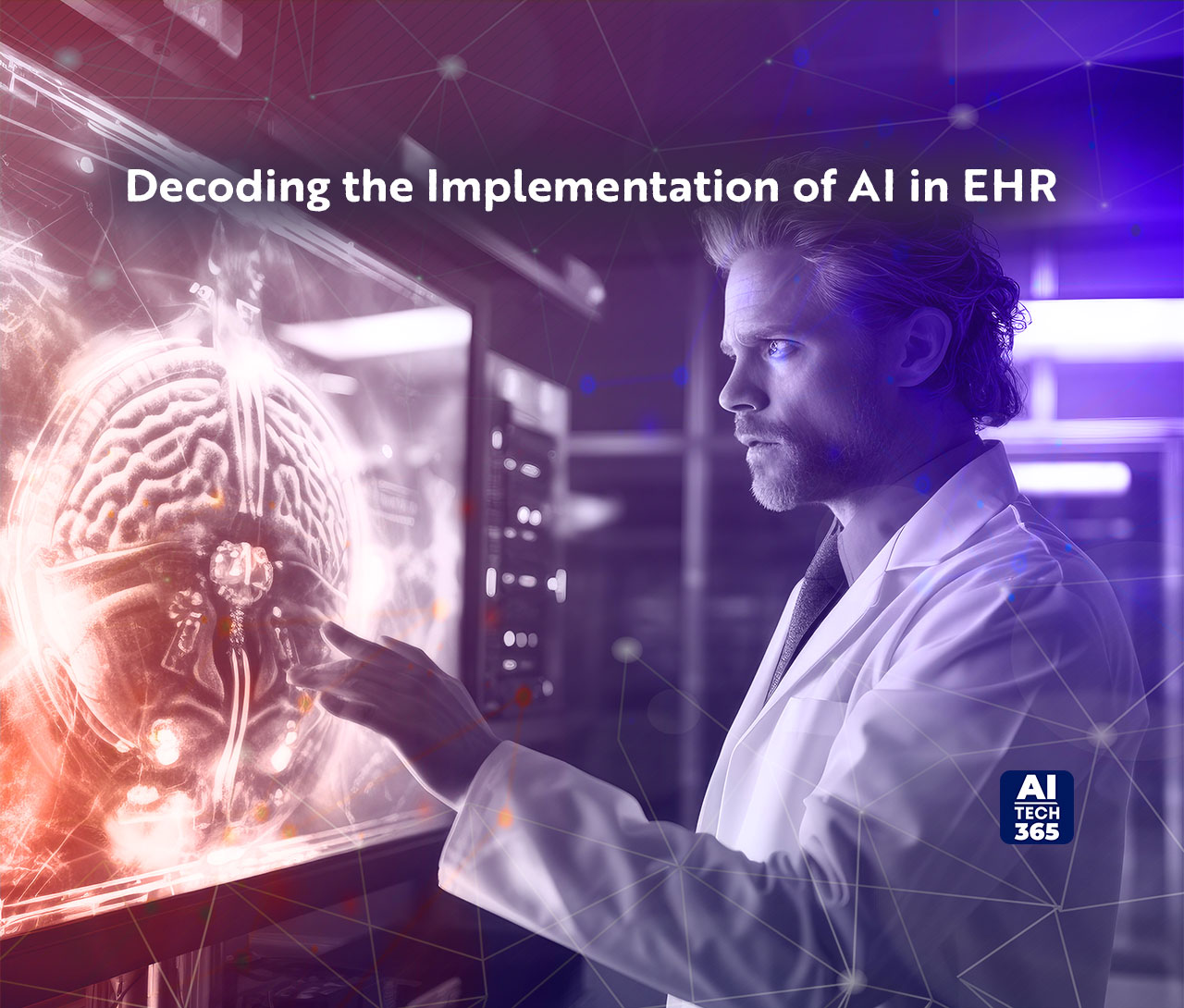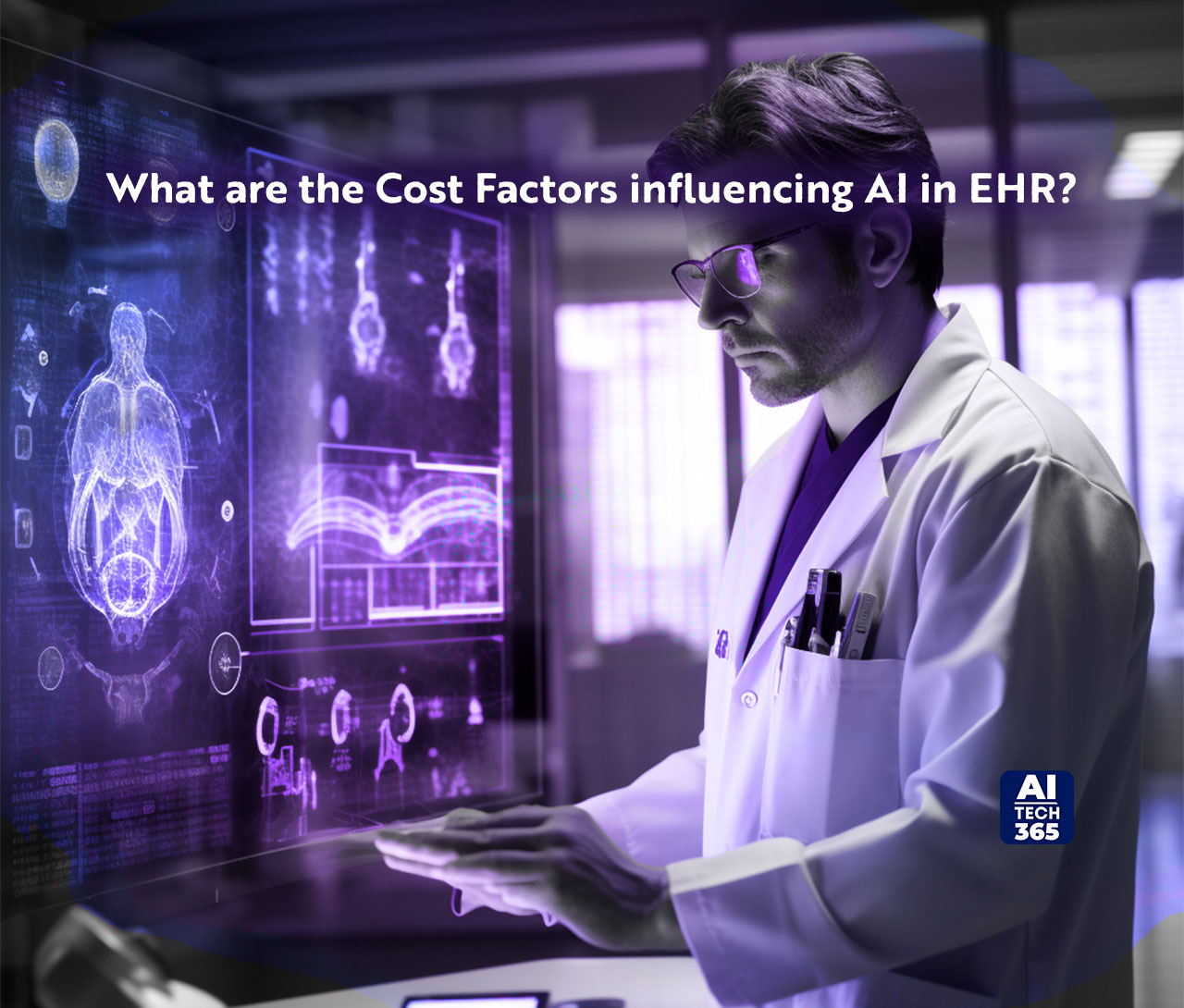Recent changes in healthcare owe much to embracing cutting-edge technologies such as artificial intelligence (AI) and data science. AI in Electronic Health Records (EHRs) plays a significant role in enhancing data discovery, extraction, and offering personalized treatment suggestions.
The progress in medical imaging and the widespread use of clinical diagnostics and screenings contribute to the accumulation of substantial patient health data. This article explains how AI in the EHR is transforming the healthcare industry.
What is the Significance of AI in EHR?
AI in EHR systems seamlessly merges various functionalities. According to Statista, if the healthcare AI market continues to develop at its current rate of 37 percent compound annual growth, it is expected to reach a valuation of about $188 billion by 2030. Machine learning and natural language processing (NLP) play vital roles in documenting patient’s medical experiences, organizing extensive EHR data banks for efficient document retrieval, assessing patient satisfaction levels, and more.
When machine learning models are combined with NLP, healthcare providers can effectively translate speech from voice recognition systems into text. These algorithms are trained extensively on large volumes of patient data, covering details such as treatment plans, equipment usage, attending physicians, and then meticulously segmented based on individual patient attributes, specific illnesses, and treatments administered.
This approach enhances document and information search capabilities within extensive databases. In addition to medical transcription and document retrieval, machine learning and predictive analytics models provide healthcare providers with valuable insights into patient satisfaction and aid in predicting potential risks.
Decoding the Implementation of AI in EHR
Extraction of data
By utilizing AI, healthcare providers can extract patient information from various sources, such as faxed clinical data and provider notes. This allows them to identify essential terms that provide actionable insights.
Predictive Analytics
Predictive models utilizing extensive data sources can effectively alert healthcare providers about critical diseases. Additionally, AI has the potential to drive advancements in medical image interpretation algorithms by seamlessly integrating them into electronic health records (EHRs) to provide decision support and treatment strategies.
Clinical Documentation
Healthcare entities harness artificial intelligence to innovate NLP-driven solutions that seamlessly interface with electronic health records, extracting vital information from clinical notes. This empowers medical professionals to dedicate their attention primarily to patient care and treatment planning.
Decision Support
Decisions regarding treatment procedures and strategies are ordinarily generic. However, due to the infusion of AI into systems, we are observing a surge in personalized care solutions driven by machine learning. These solutions are adept at adapting to new and real-time data.
During critical situations, electronic health records (EHRs) play a crucial role as saviors, safeguarding the complete medical background of patients through electronic storage. This digital setup enables healthcare providers to retrieve patient details from anywhere, promoting seamless access. The essence of EHRs goes beyond enhancing communication among medical professionals; they bridge the gap between physicians and patients, ultimately leading to elevated care standards. Despite challenges like physician burnout, financial constraints, and system interoperability issues, the value that EHRs bring to the healthcare system remains profound and promising.
Advantages of AI in Electronic Health Records
- Speeding up the management of patient records is facilitated by the integration of practical features, including speech recognition and AI-generated suggestions for data input.
- Enhancing patient care quality and consistency is made possible through more cohesive records and AI-boosted treatment planning, among others.
- It provides diagnostic support with an impressive accuracy rate of up to 98.7%.
- It eases the burden of administrative tasks for healthcare providers by automating processes like appointment scheduling and clinical documentation. This automation allows more time for direct patient care.
What are the Cost Factors influencing AI in EHR?
The price of a custom AI in EHR can fluctuate depending on multiple factors.
- Complexity and scope of AI functionality are desired.
- Required accuracy levels for machine learning algorithms.
- Data quality standards, quantity of data sources, and data volume for storage and processing.
- Integration intricacy with other systems, like patient portals.
- Security measures, user interface (UI), and user experience (UX) requirements.
- Expenses related to compliance, such as FDA registration for Software as a Medical Device (SaMD) functionality.
- Costs associated with cloud services, including machine learning tools, infrastructure, maintenance, and support.
Now that we know about the cost-related factors, let’s delve into other critical drivers. They include the complexity of AI algorithms and features, the size of the healthcare organization, the extent of customization required, and the level of integration with existing EHR systems.
Developing customized AI-powered electronic health records involves various costs associated with software development, AI algorithm creation, data integration, user interface design, testing, and consistent maintenance. Additionally, expenses related to licensing AI technologies and ensuring compliance with healthcare regulations may also impact the overall cost.
To obtain an exact calculation of the expenses associated with a particular AI-driven Electronic Health Record (EHR) project, consulting proficient software development firms specializing in healthcare solutions is crucial. These firms can dissect the particular requirements and furnish a personalized cost estimate for the project.
What are the Challenges Faced by AI in EHR?
- Safeguarding Data Privacy and Enhancing Security: Protecting patient data stands as an absolute priority. Be certain that AI systems adhere to data protection laws such as HIPAA (in the U.S.) and GDPR (in the EU). Introduce robust encryption and access controls to protect sensitive information. Regular security audits must be conducted to pinpoint and rectify vulnerabilities.
- Ensuring Consistency and Excellence in Data Quality: Artificial intelligence heavily relies on premium data for precise insights. It is crucial to invest in data cleansing and normalization to uphold data consistency and reliability. Implementing standard data formats and coding systems is essential to enhance interoperability and facilitate data exchange among various Electronic Health Record (EHR) systems.
- Ensuring Algorithm Accuracy and Openness: Before rolling out AI algorithms, it is imperative to conduct a thorough validation process. Take the time to collaborate with clinicians and subject matter experts for a comprehensive evaluation of the algorithm’s precision, sensitivity, and specificity. Additionally, ensures that the AI systems prioritize transparency and interpretability, enabling healthcare providers to effortlessly grasp and have faith in the results they generate.
- Incorporating Current EHR Systems for Seamless Integration: Integrating artificial intelligence smoothly into the current EHR framework may present challenges. Work closely with EHR vendors and software developers to ensure a seamless integration process and interoperability. Application Programming Interfaces (APIs) can simplify the data exchange between AI applications and EHR systems.
- Enhancing user adoption through training: Impart thorough training to healthcare professionals and staff on the effective utilization of AI tools. Address any apprehensions they may have about AI and emphasize the potential benefits and impact on patient care to promote acceptance and adoption.
- Regulatory Compliance: Stay informed about the most current regulatory directives concerning AI applications in healthcare. Collaborate closely with legal and compliance experts to ensure the adherence of AI implementation to the applicable laws and regulations.
- Ethical Considerations: AI integration into healthcare prompts ethical quandaries, including addressing accountability for AI-driven decisions and the potential biases embedded within algorithms. It is imperative to formulate ethical guidelines for utilizing AI while giving due consideration to the necessity of human oversight in critical decision-making processes.
End Note
The integration of AI in EHR has revolutionized the healthcare industry. The use of AI algorithms and machine learning techniques has enabled healthcare providers to streamline workflows, improve accuracy, and enhance patient care. AI in EHR systems has facilitated the automation of routine tasks, such as data entry and documentation, allowing healthcare professionals to focus more on patient interaction and critical decision-making.


